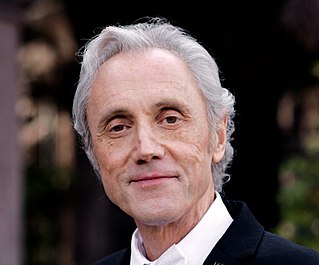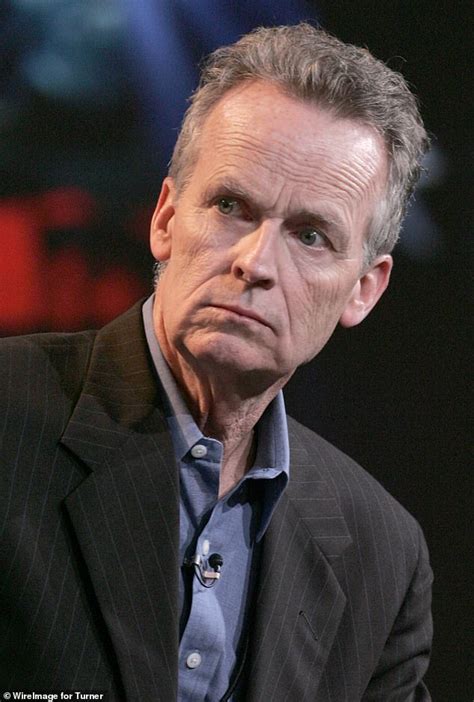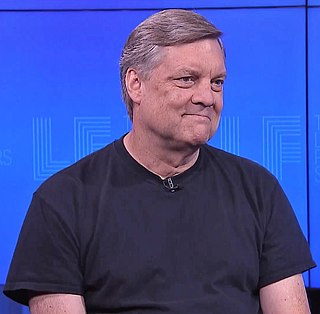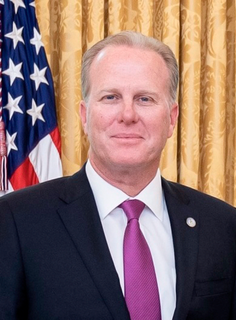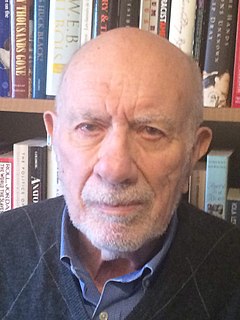Top 1200 Moral Strength Quotes & Sayings - Page 15
Explore popular Moral Strength quotes.
Last updated on December 22, 2024.
... these great improvements of modern times are blessings or curses on us, just in the same ratio as the mental, moral, and religious rule over the animal; or the animal propensities of our nature predominate over the intellectual and moral. The spider elaborates poison from the same flower, in which the bee finds materials out of which she manufactures honey.
While theoretically a person may block God out, logically there will be a breakdown because ultimately all enunciation implies a moral doctrine of some kind. And if that moral doctrine is not absolute then the definer himself becomes undefined. That's what we are living with - an undefined definer giving us definitions for our course, and we are being trapped in the quicksand of the absence of objective truth.
In ancient times, any man rising up above the common people tried to shape his life according to his principles; it is no longer like than now; it is (because) for the ancients, moral was a principle of inner life, whereas in our days, most of the time one is content to adhere to an official moral, that we recognize in theory, but that one does not care to put into practice.
Hence the sterile, uninspiring futility of a great many theoretical discussions of ethics, and the resentment which many people feel towards such discussions: moral principles remain in their minds as floating abstractions, offering them a goal they cannot grasp and demanding that they reshape their souls in its image, thus leaving them with a burden of undefinable moral guilt.
The duties God requires of us are not in proportion to the strength we possess in ourselves. Rather, they are proportional to the resources available to us in Christ. We do not have the ability in ourselves to accomplish the least of God's tasks. This is the law of grace. When we recognize it is impossible for us to perform a duty in our own strength, we will discover the secret of its accomplishment.
Cultivating care and concern for others gives rise to a kind of inner strength. No matter what difficulties or problems you face, in this wider context they’ll seem less significant and troubling to you. The inner strength, self-confidence and courage you gain by focussing on others’ needs instead of your own, brings with it a deep, calm sense of satisfaction.
For an act to be moral the intention must be based on compassion, not duty. We do something because we want to do it, because we feel we have to do it, not because we ought to do it. And even if our efforts fail - or we never even get to implement them - we are still moral because our motivation was based on compassion.
I believe our task is to develop a moral and aesthetic imagination deep enough and wide enough to encompass the contradictions of our time and history, the tremendous loss and tragedy as well as greatness and nobility, an imagination capable of recognizing that where there is light there is shadow, that out of hubris and fall can come moral regeneration, out of suffering and death, resurrection and rebirth.
. . . What role does historiography play in the way a society and culture "remembers" past events? Does the historian have a moral or civic responsibility to this project of memory that ought to influence the way he or she engages in historical practice? Should moral concerns influence the historian's choice of subject matter, of issues to discuss, of evidence to use?
...any belief in supernatural creators, rulers, or influencers of natural or human process introduces an irreparable split into the universe, and prevents us from grasping its real unity. Any belief in Absolutes, whether the absolute validity of moral commandments, of authority of revelation, of inner certitudes, or of divine inspiration, erects a formidable barrier against progress and the responsibility of improvement, moral, rational, and religious.
As Muslims, we must have an active presence based on ethical and moral consistency. We need to be very vocal, to inform people, to demonstrate when necessary. We need to write so that the people understand that what they are getting from the media and politicians is biased and not accurate. And this is true especially when it comes to some communities within the U.S. or with respect to the Middle East and Africa. This is what I am expecting from a new generation of leaders: Meet these expectations of moral consistency.
Be strong! Don't talk of ghosts and devils. We are the living devils. The sign of life is strength and growth. The sign of death is weakness. Whatever is weak, avoid! It is death. If it is strength, go down into hell and get hold of it! There is salvation only for the brave. Everyone must work out his own salvation.
My views on charity are very simple. I do not consider it a major virtue and, above all, I do not consider it a moral duty. There is nothing wrong in helping other people, if and when they are worthy of the help and you can afford to help them. I regard charity as a marginal issue. What I am fighting is the idea that charity is a moral duty and a primary virtue.
The novel as a form is usually seen to be moral if its readers consider freedom, individuality, democracy, privacy, social connection, tolerance and hope to be morally good, but it is not considered moral if the highest values of a society are adherence to rules and traditional mores, the maintenance of hierarchical relationships, and absolute ideas of right and wrong. Any society based on the latter will find novels inherently immoral and subversive.
But what of the voice and judgment of conscience? The difficulty is that we have a conscience behind our conscience, an intellectual one behind the moral. ... We can see quite well that our opinions of what is noble and good, our moral valuations, are powerful levers where action is concerned; but we must begin by refining these opinions and independently creating for ourselves new tables of values.
Do you remember, the night of the battle on Valentine's ship, when I needed some of your strength?" "Do you need it again now?" Alec said. "Because you can have it." "I always need your strength, Alec," Magnus said, and closed his eyes as their intertwined fingers began to shine, as if between them they held the light of a star.
You have to negotiate from positions of strength. And right now with Iran, we're not negotiating from a position of strength. The Europeans are negotiating from the position of "Please give up your nuclear weapons program, and by the way if you do we'll give you several boatloads of carrots." The Iranians are quite willing to keep on negotiating on that line for a long time.
The moral absolutes rest upon God's character. The moral commands He has given to men are an expression of His character. Men as created in His image are to live by choice on the basis of what God is. The standards of morality are determined by what conforms to His character, while those things which do not conform are immoral.
One reason for the decline in moral values is that the world has invented a new, constantly changing and undependable standard of moral conduct referred to as "situational ethics." Now, individuals define good and evil as being adjustable according to each situation; this is in direct contrast to the proclaimed God-given absolute standard: "Thou shalt not!"-as in "Thou shalt not steal".
Moral certainty is always a sign of cultural inferiority. The more uncivilized the man, the surer he is that he knows precisely what is right and what is wrong. All human progress, even in morals, has been the work of men who have doubted the current moral values, not of men who have whooped them up and tried to enforce them. The truly civilized man is always skeptical and tolerant.
Weakness is a great thing, and strength is nothing. When a man is just born, he is weak and flexible. When he dies, he is hard and insensitive. When a tree is growing, it's tender and pliant. But when it's dry and hard, it dies. Hardness and strength are death's companions. Pliancy and weakness are expressions of the freshness of being. Because what has hardened will never win.
There are some things fundamentally off about the stance of the book. And maybe that's okay; maybe every book is flawed, and great books, as flawed as they might be, articulate a moral argument that the reader then carries forward. The critique to this model is, of course, to ask: Should a book be ever so perfect that you come out of it with complete moral agreement that can be sustained?
The emotional wisdom of the heart is simple. When we accept our human feelings, a remarkable transformation occurs. Tenderness and wisdom arise naturally and spontaneously. Where we once sought strength over others, now our strength becomes our own; where we once sought to defend ourselves, we laugh.
There is, however, a moral basis for the vegetarian diet for which the indeterminate value of an animal's life takes on irrelevance. And that moral basis is a concern for the environment, a value as absolute as the value we all place on human life, since humanity will not survive for long on a poisoned planet. To be an environmentalist who happens to eat meat is like being a philanthropist who doesn't happen to give to charity.
Regimes planted by bayonets do not take root... Our military strength is a prerequisite to peace, but let it be clear we maintain this strength in the hope it will never be used, for the ultimate determinant in the struggle that's now going on in the world will not be bombs and rockets but a test of wills and ideas, a trial of spiritual resolve, the values we hold, the beliefs we cherish, the ideals to which we are dedicated.
Suppose . . . burglars had made entry into this . . . [library]. Picture them seated here on this floor, pouring the light of their dark-lanterns over some books they found, and thus absorbing moral truths and getting moral uplift. The whole course of their lives would have been changed. As it was, they kept straight on in their immoral way and were sent to jail. For all I know, they may next be sent to Congress.
She will look at you as women look at men, and she will judge you as a woman judge men, not on the strength of their arguments, and not in their cleverness or prowess in battle, but rather on the force of their character, the intensity of their passion, their strength of soul, their compassion, and... ah, this above all... their conversation.
Natural good is' so intimately connected with moral good, and natural evil with moral evil, that I am as certain as if I heard a voice from heaven proclaim it, that God is on the side of virtue. He has learnt much, and has not lived in vain, who has practically discovered that most strict and necessary connection, that does and will ever exist between vice and misery, and virtue and happiness.
How can we encourage other human beings to extend their moral sympathies beyond a narrow locus? How can we learn to become mere human beings, shorn of any more compelling national, ethnic, or religious identity? We can be reasonable. It is in the very nature of reason to fuse cognitive and moral horizons. Reason is nothing less than the guardian of love.
No genuine equality, no real freedom, no true manhood or womanhood can exist on any foundation save that of pecuniary independence. As a right over a man's subsistence is a power over his moral being, so a right over a woman's subsistence enslaves her will, degrades her pride and vitiates her whole moral nature.
Wherever moral ambition exists, there right exists. And moral ambition itself must be presumed present in subconsciousness, even when the conscious self seems to reject it, so long as society has resources for bringing it into action; in much the same way that the life-saver presumes life to exist in the drowned man until he has exhausted his resources for recovering respiration.
There is seemingly no biological benefit to acting with conscience; if there were, only moral individuals would survive and procreate. Sadly, we know that's not true. The benefit of conscience is that you won't suffer guilt (private) or shame (public), and that by your own self-imposed definition, you are a moral human, a special kind of animal who takes unique pride in elevating him/herself above the termites.
If we empower ourselves with responsibility over our actions, responsibility over our destinies and responsibility for directing and maintaining and creating our own ethical and moral frameworks, which is the most important thing really isn’t it because perhaps the greatest insult to humanism is this idea that mankind needs a god in order to have a moral framework.
The American elite is almost beyond redemption. . . . Moral relativism has set in so deeply that the gilded classes have become incapable of discerning right from wrong. Everything can be explained away, especially by journalists. Life is one great moral mush--sophistry washed down with Chardonnay. The ordinary citizens, thank goodness, still adhere to absolutes.... It is they who have saved the republic from creeping degradation while their 'betters' were derelict.
It would appear... that moral phenomena, when observed on a great scale, are found to resemble physical phenomena; and we thus arrive, in inquiries of this kind, at the fundamental principle, that the greater the number of individuals observed, the more do individual peculiarities, whether physical or moral, become effaced, and leave in a prominent point of view the general facts, by virtue of which society exists and is preserved.
I don't have the slightest interest in gold. I like understanding what works and what doesn't in human systems. To me that's not optional; that's a moral obligation. If you're capable of understanding the world, you have a moral obligation to become rational. And I don't see how you become rational hoarding gold. Even if it works, you're a jerk.
I'd love to watch Jack Youngblood play. His tan arms hanging out of his sleeveless jersey, he'd put those pipes on the ground, and even at 240 pounds, he would show great moves and natural strength for an undersized player. He was extremely quick, had underrated strength, and he got great leverage against the tackles.
But no one can blink at the fact that in this land, and in other lands across the world, there is an epidemic affecting the lives of millions of youth. It is a sickness that comes of a loss of values, of an abandonment of moral absolutes. The virus which has infected them comes of leaderless families, leaderless schools, leaderless communities. It comes of an attitude that says, "We will not teach moral values. We will leave the determination of such to the individual."
People talk about the idea of special relationships, that is, the morality only really binds people who stand in some kind of contractual relationship with each other but in fact if you take that seriously as a criteria of when we have a moral relationship then it's hard to see why we would have moral obligations to strangers for example or people who live across the sea from us but yet, every decent person believes that we do.
I liked wrestling a lot better than boxing. I remember thinking at that time that wrestling was a pure demonstration of strength, which I was interested in, while boxing was just hitting somebody or getting hit, which didn't appeal to me. But a demonstration of strength was okay, so I chose wrestling.
Morality is neither rational nor absolute nor natural. World has known many moral systems, each of which advances claims universality; all moral systems are therefore particular, serving a specific purpose for their propagators or creators, and enforcing a certain regime that disciplines human beings for social life by narrowing our perspectives and limiting our horizons.
...the Lord of the Universe carries the entire burden of this world. You imagine you do. You can hand all your burdens over to His care. Whatever you have to do, you will be made an instrument for doing it at the right time. Do not think you cannot do it unless you have the desire to do it. Desire does not give you the strength for doing. The entire strength is the Lord's.
If you choose the liberty and pride and strength of the single soul, and the free fraternization of men, as the purpose which your life is to make manifest then do not sell it for tinsel. Think that your soul is strong and will hold its way; and slowly, through bitter struggle perhaps the strength will grow.
Rather take that moral sense and apply it to the particulars of a job that is going to test those ethical and moral precepts differently than if you're a professor, or a business person, or a dad. And if I were not comfortable with the judicious use of our military to protect the American people, than I shouldn't have run for president. And having said that, I do think that the wisdom of a [Martin Luther] King or a [Mahatma] Gandhi can inform my decisions.
Both Marx and Nietzsche understood that moral outrage is the last resort of the powerless. That is why Marx refused to issue moral condemnations of capitalism, preferring instead to lay out, calmly and ruthlessly, his reasons for believing that it is destined to be replaced by socialism. And that is why Nietzsche mocks Christianity for portraying its crucified Saviour as bait wriggling on a hook to catch unsuspecting souls.
The doctrine that might makes right has covered the earth with misery. While it crushes the weak, it also destroys the strong. Every deceit, every cruelty, every wrong, reaches back sooner or later and crushes its author. Justice is moral health, bringing happiness, wrong is moral disease, bringing mortal death.
I'm very much for helping create women who are going to be successful women. I don't like women who imitate men, who want to emasculate men. I think women should be feminine. That does not mean a 'air-brain' or someone who is not strong. I think real strength is strength of character, not the ability to push everyone around.









